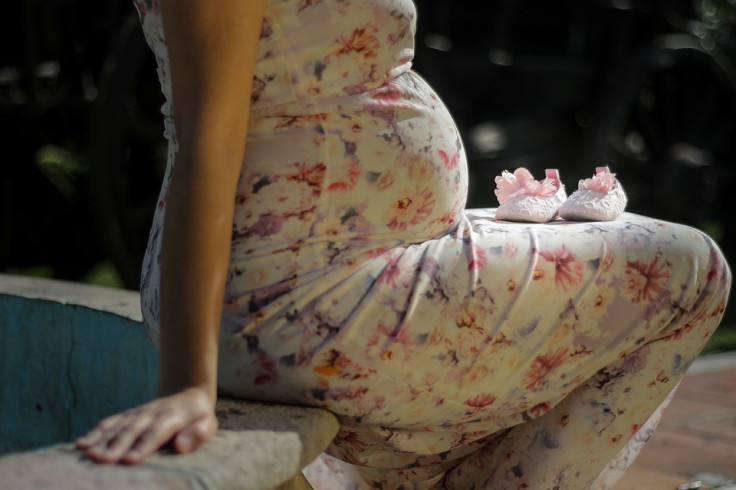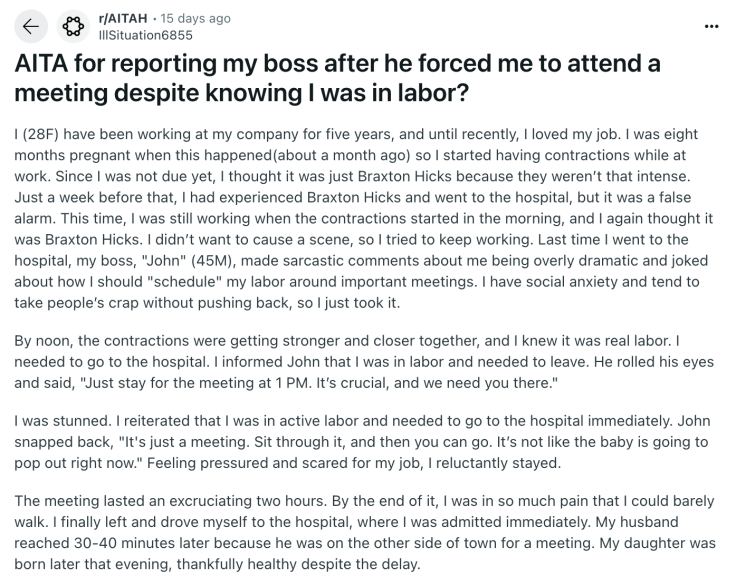
In a stark reminder of ongoing workplace discrimination, a pregnant employee was forced to attend a meeting while in labour, highlighting the pressures and prejudices that many women still face in the workplace.
While pregnancy and work can generally coexist without issue, some women face extreme pressures to continue working up to the very end of their pregnancy. This can leave them uncertain about the right time to step back and prioritise their health. Unfortunately, many women still encounter workplace discrimination, which can severely impact their well-being and career.
The Incident: A Pregnant Employee's Ordeal
A recent incident underscored this troubling reality. A 28-year-old pregnant employee, eight months along, began experiencing contractions while at work. Initially mistaking them for Braxton Hicks contractions, she soon realised she was in active labour. Despite this, she was compelled to endure a two-hour meeting, suffering in silence.
The employee recounted her experience, revealing that her boss, "John" (45M), had previously made sarcastic remarks about her pregnancy. "Last time I went to the hospital, John made sarcastic comments about me being overly dramatic and joked about how I should 'schedule' my labour around important meetings," she said. On the day of the incident, she informed John that she was in labour and needed to leave. His response was dismissive and unsympathetic: "Just stay for the meeting at 1 PM. It's crucial, and we need you there."
Forced to Stay: The Employee's Account
"I was stunned," the employee said. "I reiterated that I was in active labour and needed to go to the hospital immediately. John snapped back, 'It's just a meeting. Sit through it, and then you can go. It's not like the baby is going to pop out right now.' Feeling pressured and scared for my job, I reluctantly stayed."
The meeting, which lasted for an excruciating two hours, left the employee in severe pain. "By the end of it, I was in so much pain that I could barely walk. I finally left and drove myself to the hospital, where I was admitted immediately," she added. Her daughter was born later that evening.
Workplace Repercussions

Following the incident, the employee reported John to HR, resulting in his suspension and an ongoing investigation. During the investigation, it was discovered that John had emailed the entire office while the employee was in labour, complaining about her "lack of commitment" and mocking her for "overreacting."
"Now that my maternity leave is over, I find myself isolated at work," the employee said. "People give me side-eyes and whisper about me. I dread going into work each day and facing the hostility and judgment. I never imagined that doing what was right for my health and my baby's well-being would turn my colleagues against me like this. It's gut-wrenching to feel so isolated and vilified for simply standing up for myself and my rights."
Legal and Social Implications
This incident sheds light on the broader issue of pregnancy discrimination in the workplace. According to a report published by The 19th, new mothers frequently face prejudices regarding their abilities, get fired while on parental leave, and are forced out of their jobs. This detrimental situation is often referred to as the "motherhood penalty."
Legal experts note that many such incidents go unreported due to the lack of robust legal protections. However, research by Bloomberg Law in 2021 indicates that pregnancy discrimination claims have been progressively increasing at the federal level since 2016, highlighting the growing visibility of the motherhood penalty.







